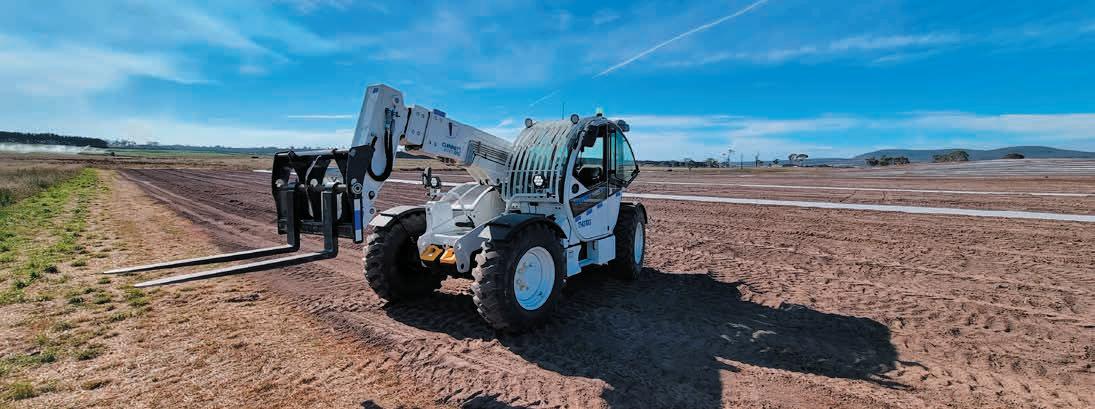INDUSTRY NEWS
Take responsibility for your actions The need to continually improve safety and develop training for members has resulted in 27 Chain of Responsibility (CoR) courses being subsided across the country.
T
he HRIA has secured funding from the National Heavy Vehicle Regulator (NHVR) with courses running now.
“The Chain of Responsibility courses are important for everyone in the hire industry because the legislation that went live in October 2018 clearly outlined the responsibilities across a broad scope of roles in our industry,” James Oxenham, HRIA CEO, said. “If a driver has a crash whilst delivering hire equipment with a gross vehicle mass in excess of 4.5 tonne, it is not just the driver the investigation will focus on. “As an executive, employer or contractor, you should be ensuring that safety systems and controls are in place to prevent breaches. In a prosecution, the courts may consider the actions of each party in the supply chain. This includes what measures that have in place to prevent breaches of the Heavy Vehicle National Law regulation occurring. “Each party in the chain must demonstrate that they took all reasonable steps to prevent the breach or show the court that there were no steps they could reasonably be expected to have taken to prevent the breach.” The NHVR and was successful in obtaining funding to issue 27 courses across Australia. There is no fee to attend and the courses are open to members and non-members. The HRIA is encouraging its members to invite the transport providers they work with.
The courses are purpose built The HRIA face-to-face Chain of Responsibility and Load Restraint Training
8
courses has been developed specifically for the hire industry. The course has been designed for those with CoR knowledge as well as those who may not be across all the details of the legislation. “The HRIA works with the team who are delivering the course by sourcing venues, organising catering, sending out communications, managing attendee lists and sending out certificates,” Linda Papendieck, HRIA senior administrative officer, said. “We have scheduled the courses all around Australia with a mix of regional areas and city centres and the course can be completed in a day.”
Practical knowledge that you can use immediately
knowledge gained from part one and part two in a practical way.” The course is being presented by our specialist load restraint engineers, each with extensive experience in transport safety across a variety of industries. Their experience includes designing load restraint systems; incident investigations, development of chain of responsibility documentation and training organisations across a broad variety of industries in CoR and load restraint. “The HRIA has submitted a further application to the NHVR to build on the CoR courses we are currently rolling out,” Oxenham said. “Our intention is to offer online training and load restraint resources to the industry and sub-contracting transport companies. This will be the third offering from the HRIA since October 2018 when we launched the CoR awareness online course, followed by face to face courses launched in December 2020.”
As an executive, employer or contractor, you should be ensuring that safety systems and controls are in place to prevent breaches.
The practical aspect of the CoR courses can’t be underestimated. “The training is broken into two parts,” Warwick Brown, Engistics, senior logistics engineer, said. “Part one involves explaining the CoR law, what is covered and how this relates to themselves and the hire and rental industry. “Part two centres around load restraint and giving the group the fundamental tools to transport their equipment safely, including loading and unloading. We have developed a range of case studies, relating to the industry, that are used throughout the session. “These case studies assist in applying the
For more information contact the HRIA head office.
HIRE & RENTAL MAGAZINE MAY 2021





